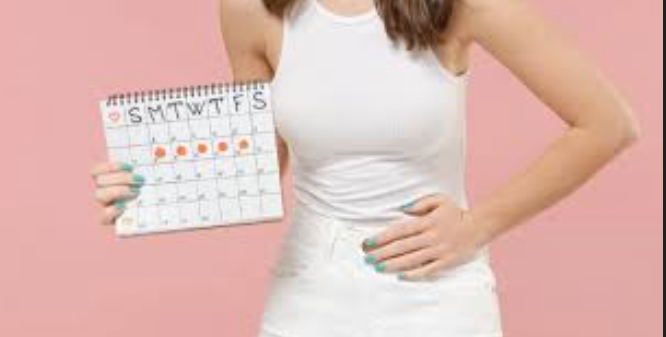First period Quiz, or menarche, is a milestone in a girl’s life. It is the first indication of puberty and the beginning of physical growth. For most of us, it is all of those things – excitement, curiosity, and a little fear. It is completely okay to wonder when this change will happen. Your body is on its own personal schedule, and each girl develops at her own pace. No age or day is “correct” to get your period.
In preparation for this event, most teens take a first-period quiz. These quizzes are a fun and educational tool that can give you a general idea of what to expect and when you might receive your period. Conceptualize it more as a map and less as a crystal ball. It won’t be able to tell you the day, but it can lead you in the correct direction by showing you the signs your body is already showing you. It’s a great way to get to know your own body and be better prepared for this natural process.
What Is a First Period Quiz?

A first period quiz is a set of questions that will enable you to guess when your first period will arrive. Teenagers are likely to seek these quizzes as they are interested in knowing when it should arrive and what to expect. You can get teenagers looking for a “when am I gonna get my first period quiz” or even an “exact first period quiz.” These quizzes come from common uncertainty and curiosity. They’re intended to be a useful guide, but not a final medical diagnosis.
Though they’re not a substitute for a doctor’s recommendation, they can give a rough estimate of your timeline by considering your age and other indicators of puberty. It’s necessary to realize that no quiz, regardless of how it’s promoted, can ever be 100% accurate. The phrase “first period quiz accurate” is a bit deceptive because the only one who actually knows when your period will arrive is your own body. The quizzes are based on general trends and averages, so they’re best applied for guidance and not to a guaranteed prediction.
Signs Your First Period Is Coming
One of how these quizzes are helpful is that they focus on the clues your body is already giving you. You can generally make an educated guess about when your period is probably going to be around by paying attention to certain things. These are the types of things a “when am I gonna get my first period quiz” will have you notice.

One of the first signs of puberty is breast development. Most girls will get their first period two or three years after breast budding begins. A growth spurt is another important sign. This is a sudden and fast increase in height. The growth spurt will then gradually slow down and end around six months before your first period. You might also notice hair growth, both in your armpits and in the pubic region.
The final sign that your period is due is a change in vaginal discharge. Most girls will notice clear or whitish discharge in their underpants for a few months to a year before their first period. This is your body naturally lubricating and cleansing the vagina. All of these bodily changes are normal, and they’re signals that your body is preparing for this new phase.
How Accurate Are First Period Quizzes?
It’s important to know the accuracy of these quizzes. A first-period quiz relies on averages and typical patterns of puberty, not individual medical information. The results are an approximation, so you’ll see them as a handy guide and not as a precise forecast. Whether a first-period quiz is accurate or not depends largely on how many questions it asks about your body’s precise changes and whether it accounts for issues like family history.
For instance, if a quiz only queries your age, then its forecast will be much less accurate compared to one that probes about breast development, pubic hair maturation, and when your mom or elder sisters obtained their first period. Even the most perfect quizzes cannot compensate for unique variations in genetics, diet, health, and habits, all of which can influence the onset of menarche. So, while a quiz might give you an approximation of when your period is likely to arrive, don’t freak out if your period does not arrive on time according to the quiz. Your body has its own agenda, and that’s completely normal.

Taking a First Period Quiz: What to Expect
When you’re given a first-period quiz, you’ll usually be asked a series of questions regarding your body and your family. The quizzes tend to be presented in a way that feels like having a conversation with someone friendly, walking you through the symptoms of puberty. You might be asked questions such as:
- How old are you? Your age is a rough beginning point, but not the only consideration. The average age of a first period is around 12, but it ranges from 8 to 16.
- Have your breasts started to develop? This is a significant indicator, as breast growth is one of the earliest signs of puberty.
- Did you grow pubic hair? Hair development in your genital area is another sign that puberty is in full swing.
- Did you experience a growth spurt? Tests will likely ask whether you’ve had an unexpected burst in your height, as this often happens before your period.
- Did you notice any vaginal discharge? This white or clear fluid is a strong sign your period is near.
- When was the first period of your mom or your older sister? Hereditary components can be a great predictor because menarche usually arrives in multiples.
Even though some tests promote themselves as an “exact first period test,” remember that this is a marketing tool. No test will be able to tell you the specific date. They interview you and then use your answers to give you a personalized, but still general, estimate.
Can a quiz tell me the exact day?
No. A quiz can’t even say that your first period will appear on an exact day, week, or month. Your internal clock is complex and influenced by all the variables. A quiz can only provide you with an estimate based on averages.
Is the first period quiz accurate for everybody?
Not necessarily. Although a quiz can be pretty accurate for most, it will never be spot on for everyone. Stress, diet, and genetics can all play a role in the timing of your first period. The quiz is a guidance tool, not a promise.
Should I prepare based on quiz results?
Yes! The result of a quiz can be a great motivation to prepare. If the quiz shows your period is due to arrive in the next six to 12 months, it’s time to get learning more, talk this over with an adult, and prepare a small period kit.
What if my period is sooner than the quiz prediction?

Don’t panic. You don’t need to panic if you don’t get your period when the quiz says you should. Puberty is not a race. Bodies develop in different ways in everyone, and the quiz estimate is exactly that—an estimate. If you have concerns, the best thing you can do is talk to a parent, guardian, or doctor.
Healthy Preparation for Your First Period
Taking a quiz as a heads-up can be a great way to feel more prepared and in control. These are a few simple, real-life tips to get you ready:
- Make a period kit. Put some pads or panty liners in a handy little bag that you can carry with you in your backpack. That way, you’ll be ready wherever you are when it hits.
- Talk to a trusted adult. This may be your mom, an older brother or sister, an aunt or uncle, a school nurse, or another adult whom you trust. They can offer their own story, answer questions, and make you less alone.
- Practice self-care and hygiene. Practice putting on pads or panty liners beforehand so you feel more at ease. Make sure to clean the area well and take care of your body.
- Learn the basics. Learn about the menstrual cycle and what to expect in the coming months. Knowing about what is happening in your body can make you feel more comfortable and confident.
- A period quiz can be an excellent motivation technique to prepare yourself and feel prepared for this grand transformation. It’s a matter of taking control and acquiring the information you require.
Conclusion
Your journey to your first period is your own, and it’s an everyday experience. Remember that your body will be giving you the signs when you are ready. A first-period quiz is a cool and helpful resource, but it’s only a guide. It can inform you of what is happening with your body and get you ready, but it’s not the ultimate word.
Pay attention to your body, be gentle with yourself, and know that you are not alone in this journey. Whether it is next week, next month, or next year, when your period does come, you’ll be prepared and capable of handling it confidently. The sole key is to feel good about your body and all the amazing things that it is doing.




